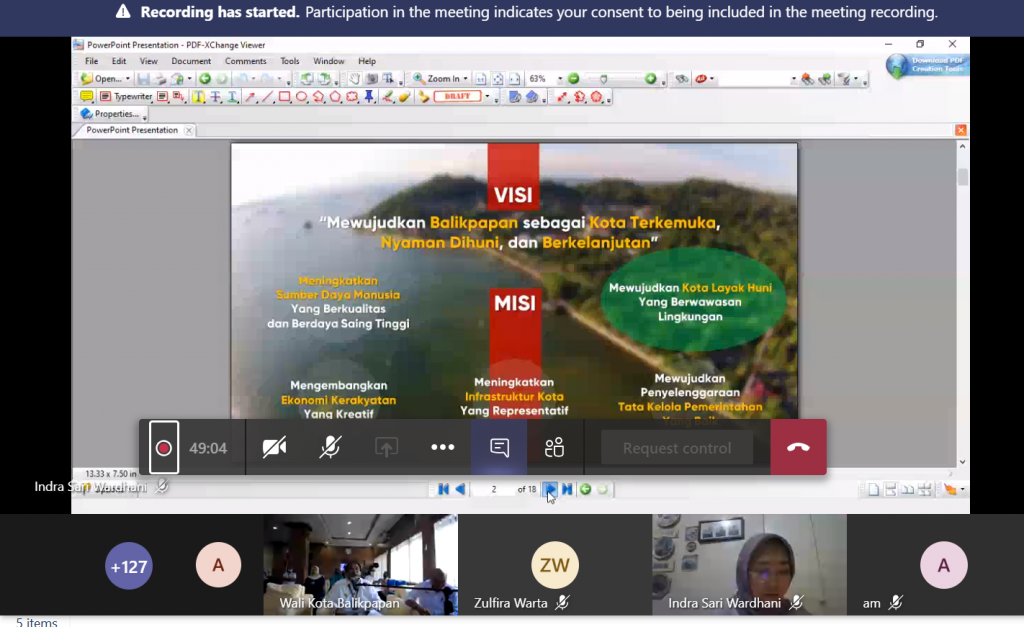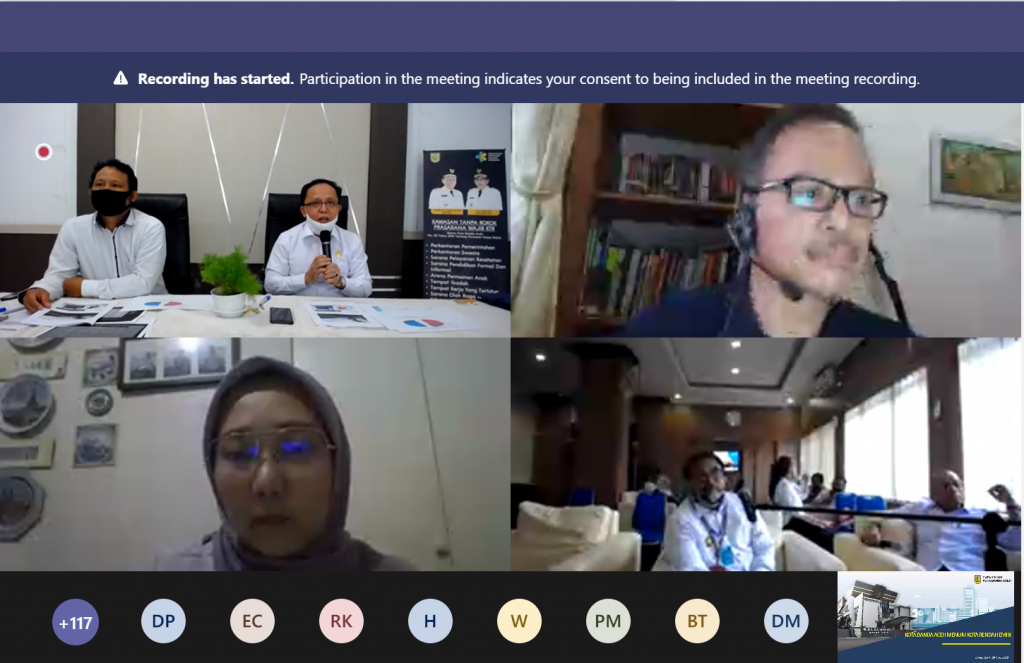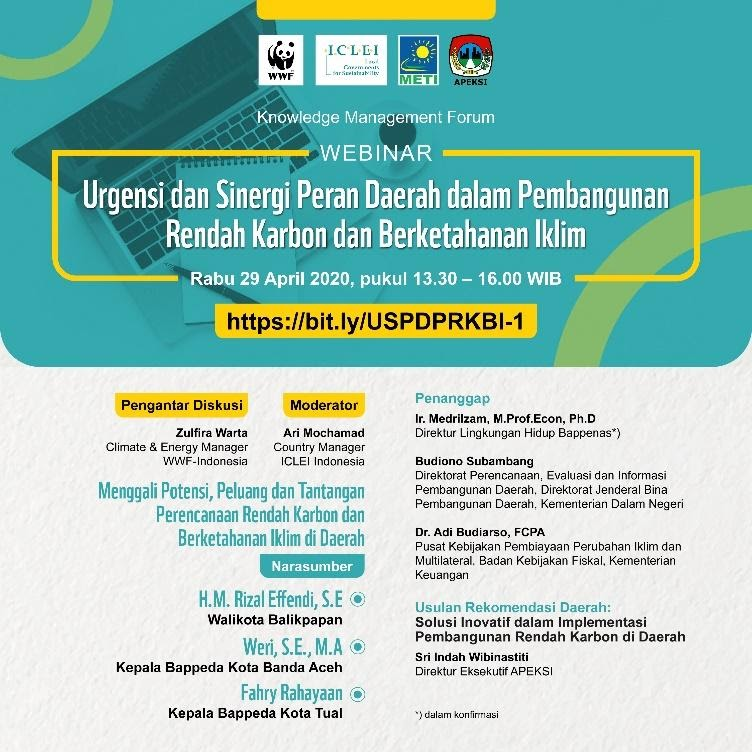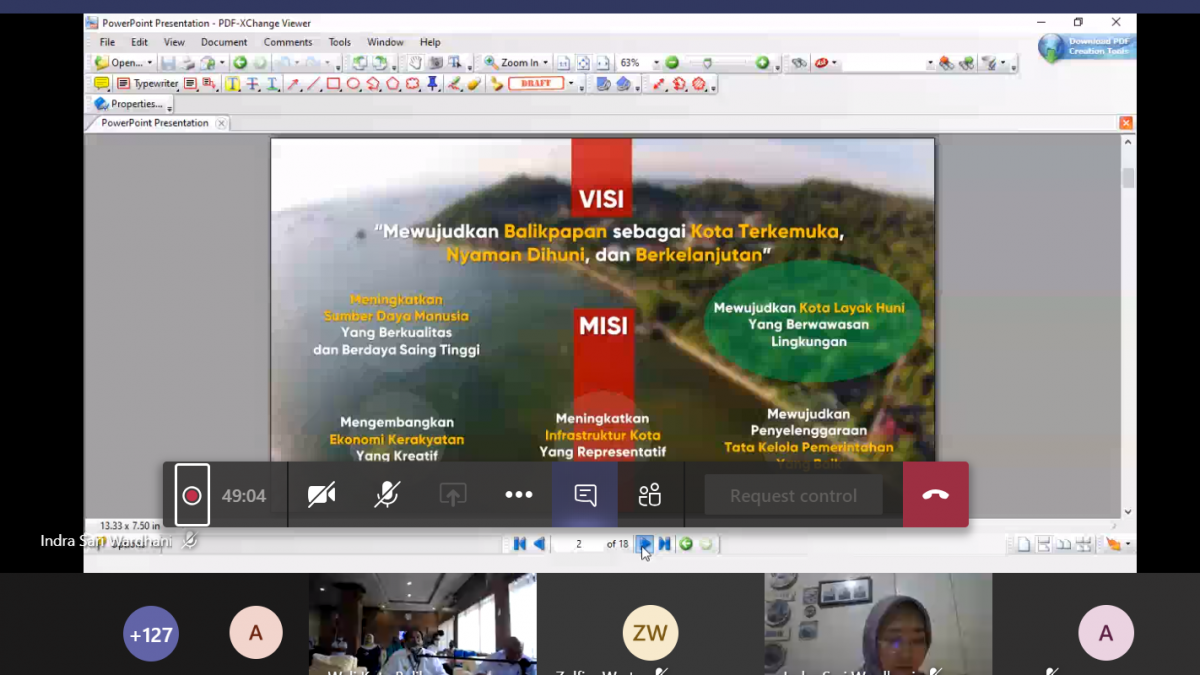
Climate action at community-level: African solutions that really work
April 16, 2020
Indonesian local governments demonstrate commitment to low emission development, explores renewable and energy conservation options
May 12, 2020ICLEI Indonesia in collaboration with the Association of Indonesia Municipalities (APEKSI), WWF Indonesia and Indonesian Renewable Energy Society (METI) held a Knowledge Management Forum (KMF) webinar series as part of activities from One Planet City Challenge (OPCC) 2019/2020

Jakarta, Indonesia – ICLEI Indonesia in collaboration with the Association of Indonesia Municipalities (APEKSI), WWF Indonesia and Indonesian Renewable Energy Society (METI) held Knowledge Management Forum (KMF) webinar series as part of activities from One Planet City Challenge (OPCC) 2019/2020. The event was attended by representatives from all local governments in Indonesia and the Ministry of National Development Planning, Ministry of Home Affairs, Ministry of Finance, and other development partners. The webinar captured how local governments understand low carbon development and how they are applying this agenda to local development planning.
Low carbon development as a national agenda
The Government of Indonesia has adopted low carbon development into the national mid-term development planning period 2020-2024 with the agenda of climate change included in the national priorities. In line with this, Mr. Fahry Rahayaan, Head of Local Development Planning Agency of Tual City suggested that “Bottom-up approach also needs to be considered in the formulation process of low carbon development policy and pay attention to the characteristics and potential of each region in Indonesia. By doing so, it will provide clear guidance to each stakeholder and ensure its implementation on the track.”
Representatives from the cities of Balikpapan, Banda Aceh, and Tual shared their experiences on how to mainstream climate change issues into city development planning and highlighted the challenges and opportunities. The cities understand that optimizing its potential and resources and strengthening their inter-local cooperation and inclusive community involvement are crucial in implementing local regulations related to climate change.
The City of Banda Aceh aims to limit the increase in greenhouse gas emissions by promoting green transportation, green waste, green energy, and green public spaces.

Mr. Budiono Subambang, Director of Development Planning, Evaluation and Information, Ministry of Home Affair, shared that “There are three important pillars that determine the success or failure of the implementation of low carbon development and climate resilience. First, the legal basis. Second, human resources with the same understanding of the context of low carbon development and climate resilience. Third, funding and infrastructure.” The Ministry of Home Affairs provides guidance and supervision to local governments.
Overcoming fiscal limitations
Local fiscal limitations have been identified as one of the challenges in implementing low carbon development and climate resilience in Indonesia. To bridge this gap, Mr. Adi Budiarso, Head of Climate Change and Multilateral Financing Policy, Ministry of Finance mentioned that there are funding options to support local governments. These include the Green Sukuk, Green Climate Fund, SDG Indonesia One, and Environmental Fund Management. He further added that the national government of Indonesia will be issuing guidelines for local climate budget tagging as well as provide a platform for stronger private sector involvement.
This webinar is the first out of three KMF webinars providing space for local governments in Indonesia to share, learn, and discuss with other key external stakeholders. To further strengthen low carbon development and climate action planning in Indonesia, a set of recommendations based on the discussions in the webinar series shall be shared with the relevant stakeholders for their consideration.


